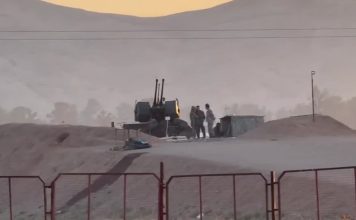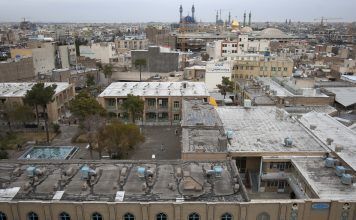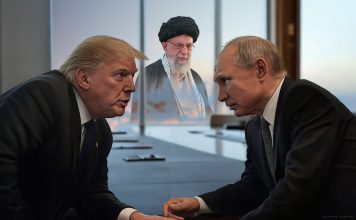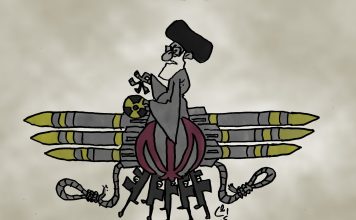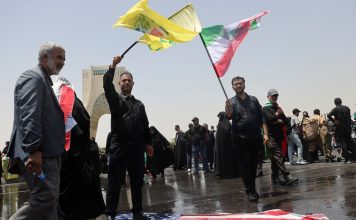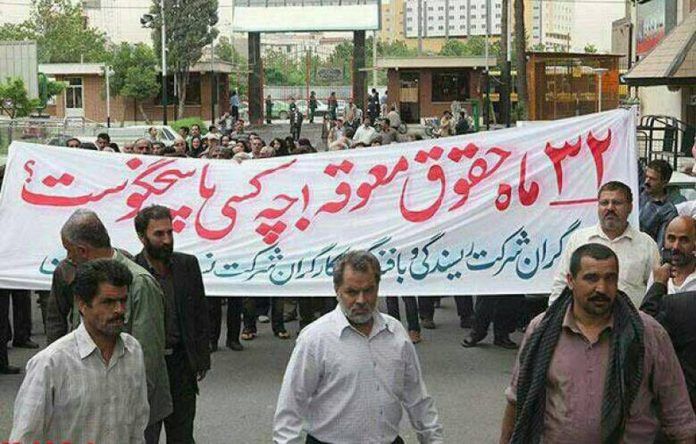
By Kayhan Life Staff
May 1 marked International Workers’ Day, also known as Labor Day In some countries. In Iran, despite facing ongoing and significant economic pressures and government crackdowns on trade union protests, workers have shown remarkable resilience. The labor sector in Iran has been grappling with ongoing challenges, including issues related to livelihood, rights, and freedoms, yet the spirit of the workers remains unbroken.
The economic policies implemented by officials like Seyed Sowlat Mortazavi, the Minister of Cooperative, Labor, and Social Affairs, have not only failed to address the labor force’s fundamental needs, but have also pushed many workers into poverty. This is a clear injustice that needs to be addressed, as these hardworking individuals are being denied their basic rights and are left to struggle financially.
Domestic media in Iran have used International Workers’ Day on May 1 to highlight the challenges faced by the labor force, probing into issues such as short-term contracts and insufficient minimum wage.
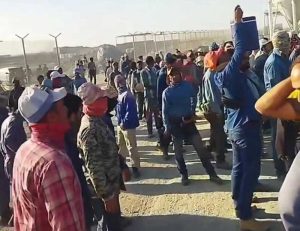
The investigation conducted by Hammihan newspaper in its May 1 issue revealed that short-term contracts had been the primary cause of job insecurity among workers in various manufacturing and industrial sectors in Iran during the previous year.
The report probed the widespread dismissal of workers on temporary contracts in various industries and public service sectors throughout Iran. The affected areas include the South Pars Refinery, one of the 13 gas refineries within the South Pars Gas Complex.
Mass firings of workers have also been reported at the Azna Ferroalloy Company in Lorestan Province, the Ilam Petrochemical Complex in Ilam Province, Jiroft Municipality in Kerman Province, Tehran Municipality in Tehran Province, Isfahan Municipality in Isfahan Province, and Saqqez Municipality in Kurdistan Province.
The report by Hammihan highlighted challenges faced by workers with short-term contracts in the oil industry. Specifically, it mentioned the case of 23 employees listed on the organizational chart of the South Pars Gas Complex Company, who were fired because of a “downsizing” process. However, their dismissal was reportedly linked to their objections to unfair contract terms.
Several of these employees had a minimum of six years of experience within the industry. In a group of workers at the South Pars Gas Complex, individuals with 20 years of experience had previously worked in Refinery-6 Phase 15 and Phase 16 of the operations.
Approximately one month into the new Iranian calendar year, which started on March 21, these skilled workers were reportedly presented with new contracts that they believed infringed upon labor laws. One contentious clause within these contracts reportedly required any worker who signed them to waive their right to make any claims against their employer.
In recent times, the Islamic Republic has employed the term “downsizing” to refer to restructuring as a cost-cutting measure, which essentially translates as dismissal.
The euphemism allows companies, employers, and managers to articulate, rationalize, and justify the termination of employees because of financial constraints, such as the inability to pay wages, temporary production line closures, or the partial shutdown of business operations.
Some employers assure laid-off workers that they will be rehired once financial challenges are resolved in various industries such as manufacturing, industrial, and services. However, historical evidence from past instances of downsizing shows that many employers do not fulfill this promise.

Under the current legal framework, labor laws offer no protection to contract workers who are hired for less than 90 days. These individuals rarely enjoy the same rights and benefits as permanent employees, leaving them vulnerable in various aspects of their employment.
Workers with short-term contracts are frequently excluded from essential protections provided by labor laws, including unemployment benefits, health insurance and social security benefits, and the right to file for unfair dismissal complaints. This lack of protection leaves them vulnerable to exploitation and abuse by employers, who can easily end their contracts without cause or notice.
These workers may need to secure private health insurance at their own expense to cover medical and hospital costs, further adding to their financial burdens.
In its May 1 issue, the Iranian Labor News Agency (ILNA) investigated employers’ insurance schemes for workers.
“The labor force is grappling with uncertainty regarding the duration of insurance payment entitlement for workers, a prevalent issue particularly affecting those in the private sector and on short-term contracts,” ILNA said. “Many workers do not voice their concerns, worrying about immediate financial needs and fearing job loss. Notably, construction workers are consistently marginalized regarding social security and welfare benefits.”
A worker will face difficulties collecting full unemployment benefits because the employer failed to pay insurance premiums. As a result, the lack of insurance coverage during workers’ years of employment prevents them from meeting the minimum employment requirement to qualify for unemployment insurance.
“Some workers cannot afford necessary medical treatments in their mid-life and old age, forcing them to continue working past retirement age or rely on family and friends for support. These workers had been hoping for a peaceful and independent old age after dedicating three decades of their lives to their jobs,” ILNA said.
The Ministry of Labor has proposed amending Article 7 of the Labor Law. It calls for all temporary contracts to be converted into permanent contracts after an individual has completed five years of continuous work. However, labor activists are skeptical about the effectiveness of this measure. They argue that even if the bill is enacted, it may not offer a definitive solution for ensuring long-term job security for workers. These activists are working tirelessly to raise awareness about the issue and push for more comprehensive reforms.
They note the potential for employers to exploit loopholes in the legislation by terminating existing employees at the end of their temporary contract period and replacing them with new hires. This practice could effectively circumvent individuals’ requirements to complete the “five years of continuous work” necessary for automatic conversion to a permanent contract.
Temporary contracts have been criticized for their potential to enable employers and contractors to circumvent legal obligations and avoid providing job security to workers.
Hammihan highlighted this issue, emphasizing the negative implications of such contractual arrangements. This situation can be traced back to 1990, following the enactment of Article 7 of the Labor Laws.
In an interview with Hammihan, labor expert Farshad Esmaili highlighted the significant shift in employment contracts following the approval of Article 7 of the Labor Law in 1990.
“Prior to this amendment, contracts were typically issued permanently. However, many unusual and ambiguous clauses and bylaws within Article 7 were not officially ratified and thus remained inactive across successive governmental administrations,” Mr. Esmaili noted.
“This situation ultimately paved the way for what is now known as the temporary contract phenomenon. Because of these unresolved issues within the labor laws, over 90 percent of workers are currently employed under a short-term contract scheme,” Esmaili added.
Striking Iranian Workers Demand Back Pay, Insurance, Better Work Environment
In the past year, besides the temporary contracts, the Ministry of Labor Cooperative, Labor, and Social Affairs, led by Seyed Sowlat Mortazavi, has significantly contributed to undermining the rights of workers in Iran. This includes the introduction of new labor laws that restrict workers’ rights to protest and negotiate for better conditions.
For instance, last year, the government approved a circular that significantly favored employers over workers, leading to widespread criticism. The resolution allowed employers to end workers’ contracts unilaterally and dismiss them under the guise of reasons such as “failure to perform duties” or “violation of disciplinary regulations, following a written warning.”
Other examples of the government’s actions against workers include the unfair process of determining the minimum wage. During the negotiations last winter in the Wage Committee of the Supreme Labor Council, the government imposed a 35 percent increase in workers’ wages for 2024, leaving these groups at the bottom of the poverty line. This increase was determined without proper consultation with labor unions and workers’ representatives, leading to concerns about its fairness and legality.
The Supreme Labor Council, which operates under the Ministry of Cooperative, Labor, and Social Affairs, oversees the determination and approval of the minimum wage for the upcoming year. This process is conducted in a “Wage Committee” comprising representatives from the government, employers, and workers.
The minimum wage set by this committee serves as the standard for paying salaries to a significant portion of private sector workers, retirees, and pensioners who receive benefits from the State Welfare Organization.
The labor representatives in the Wage Committee advocated for a minimum wage increase to $242 per month (based on the current exchange rate of 619,500 rials to a U.S. dollar). However, the government raised the minimum wage by only 35 percent from the previous year.
The government has established a minimum wage of $116 per month. When considering various benefits, such as job, housing, marriage, and child benefits, a worker’s total salary could amount to $178 per month. Despite this, the poverty line for a family of four is currently $484 monthly. Given these circumstances, even if both partners in a married couple are employed, they still struggle to meet their financial needs.
Alireza Kheirollahi, a labor relations researcher, has criticized Seyed Sowlat Mortazavi, arguing that he is the worst labor minister in the Islamic Republic of Iran’s history.
In comments reported by the Tehran-based Tejarat News website on May 1, Mr. Kheirollahi argued that the ministry’s managers believe setting wages is akin to determining customs tariffs, giving them the final say. He suggested that an introductory class on labor rights principles should be organized for the minister of labor to ensure a better understanding of the fundamentals.



